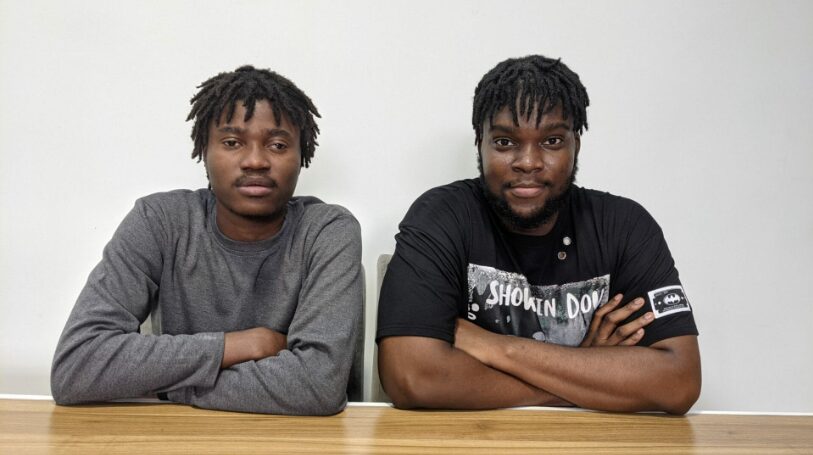In this letter, we explore:
- Thepeer drama isn’t over yet
- Flutterwave bets big on stablecoins with Polygon
- Meta eyeing major talent restructuring
We also curated updates on startup funding in Africa, weekend reads, and several opportunities.
Thepeer drama isn’t over yet
Turns out Thepeer’s shutdown in 2024 wasn’t the end of the story, just the start of a messy sequel. Teaaaaaaa! 🍵
Over a year after Nigerian fintech startup Thepeer shut down, co-founder Sultan Akintunde has reopened old wounds with fresh claims about what really happened. Thepeer, which once promised smooth wallet-to-wallet transfers through its API, abruptly shut its doors in May 2024, citing “operational challenges.” But shareholders had a different story: over $1.2 million in unaccounted funds and founders allegedly dodging an audit.
In a series of posts, Akintunde alleged that Thepeer’s collapse stemmed from “fraudulent activities and missing money.” He claimed that $50,000 went into car purchases for a company barely making $1,000 a year, and that the shutdown itself was “an attempt to cover up the missing money.”
An email sent to then-CEO Chike Ononye in March 2024 showed Akintunde requesting investor reports and audited accounts after months of radio silence. Instead of transparency, he said, he got a shutdown notice.
According to Akintunde, Ononye could only justify about $500,000 of the funds, leaving roughly $700,000 unaccounted for. He also accused both Ononye and fellow co-founder Michael Okoh of relocating to the UK, leaving no one to manage Thepeer’s partnerships, a fatal move for a startup built on integrations.
Thepeer did return $357,000 to investors before closing shop, but that hasn’t stopped shareholders from asking for a proper audit.
For many in tech, this saga feels like déjà vu: another high-profile African startup undone not by competition or regulation, but by what’s looking more and more like poor governance and eroded trust.
Flutterwave bets big on stablecoins with Polygon
Flutterwave is taking another swing at fixing Africa’s cross-border payment problem, this time with help from Polygon Labs. The payments giant has entered a multi-year partnership with the blockchain company to power stablecoin-based settlements across more than 30 African countries. The goal: make cross-border payments faster, cheaper, and less chaotic than they’ve ever been.
Stablecoins have quietly become the continent’s favourite workaround for expensive remittances and slow settlement systems. Nigeria alone processed nearly $22 billion in stablecoin transactions between July 2023 and June 2024, accounting for about 43 % of all crypto volume in Sub-Saharan Africa.
Now, Flutterwave wants to formalise that movement. By integrating Polygon’s proof-of-stake blockchain into its network, the company plans to enable near-instant transactions and cut settlement costs from 8% (the regional average) to almost nothing. The rollout starts with corporate clients before extending to small businesses and individuals through the Send App in 2026.
This isn’t Flutterwave’s first blockchain flirtation; the company joined Circle’s Payment Network earlier this year. But this Polygon deal is its biggest yet. As CEO Olugbenga Agboola puts it: “We’re making international payments simpler than local ones.”
Meta eyeing major talent restructuring
Meta just dropped its Q3 2025 report, and let’s just say the company’s spending habits are starting to look like its data centres—massive. The social giant pulled in $51.24 billion in revenue (up 26% year-on-year), its best growth streak since early 2024. But expenses are climbing faster than Zuckerberg’s metaverse ambitions, with 2025 costs now pegged at up to $118 billion.
Most of that cash is going into AI: data centres, cloud infrastructure, and a $27 billion joint venture in Louisiana. Meta’s headcount is back up to 78,450, driven by AI hires while non-core roles quietly shrink. The message is clear; if you’re not building AI, you’re probably not staying.
Ad revenue is still Meta’s moneymaker, hitting $50.08 billion this quarter as daily users reached 3.54 billion. Reality Labs remains a money pit ($4.4 billion loss on $470 million revenue), but at least those Ray-Ban smart glasses sold out🤓.
Analysts are closely watching the margins: next year, expenses are projected to grow 35% against an 18% rise in revenue. Still, Zuckerberg insists Meta is “compute-starved,” which roughly translates to: “we’re going to keep spending.”
Meanwhile, over at Amazon HQ, things are less spend-happy. The company is reportedly planning to lay off up to 30,000 corporate employees as it tries to trim costs and prepare for its own AI-heavy future.
💰 State of Funding in Africa
Here’s a roundup of African startups that secured funding this week:
- Velents.ai, an Egyptian–Saudi AI startup, raised $1.5 million from a group of angel investors that includes senior executives from Google, Boston Consulting Group (BCG), and other global companies.
- Kotani Pay, a Kenyan fintech startup, received undisclosed funding from Tether, one of the world’s leading digital asset firms.
🍿 Weekend binge
- The money traps keeping Africans poor
- Why everyone keeps building the same startups
- I want to do everything, so I do nothing
- The truth about building in Africa today
💼 Opportunities
We carefully curate open opportunities in Product & Design, Data & Engineering, and Admin & Growth every week.
Product & Design
- Wave — Senior Product Marketing Manager, Remote
- Busha — Senior Brand Designer, Lagos
Data & Engineering
- Trust Wallet — QE Engineer, Remote
- Kiakia Finance — Frontend Engineer, Remote
Admin & Growth
- GrowthX — Community Lead, Remote
- Opensense — Content Marketing Manager, Remote
Get passive updates on African tech & startups
View and choose the stories to interact with on our WhatsApp Channel
Explore





